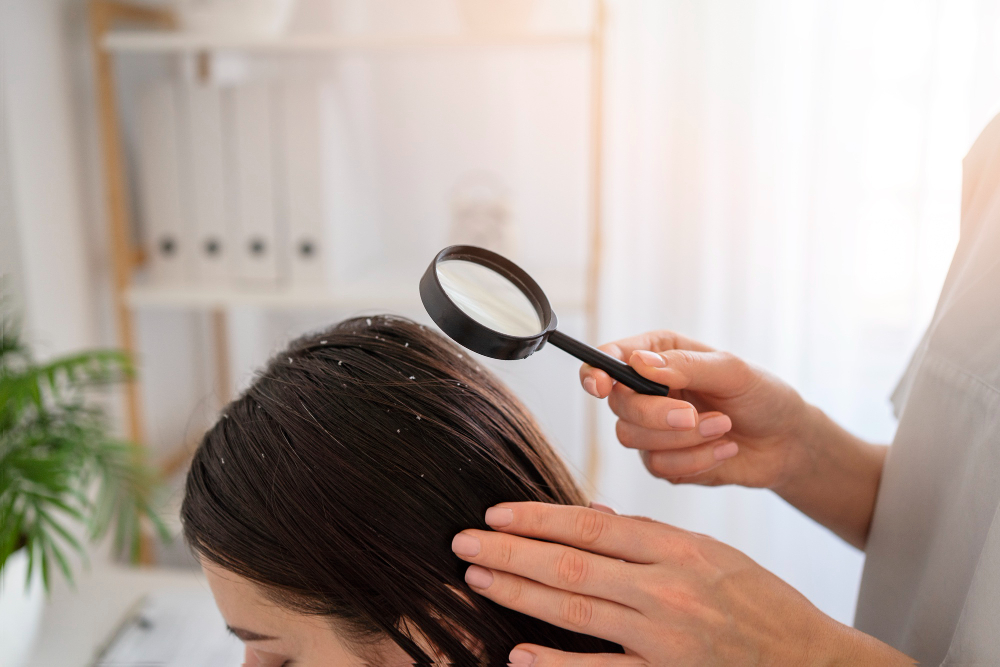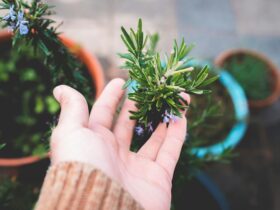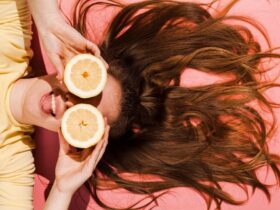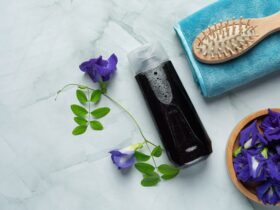Dandruff can be difficult and embarrassing since it causes itchy, white skin flakes on your scalp. Additionally, it could result in other signs including tingling skin and greasy areas on your scalp. Dry skin, seborrheic dermatitis, sensitivity to hair products, and the development of a particular kind of fungus that lives on your scalp are just a few of the potential causes of dandruff. In this article, we will learn how to get of dandruff.
What causes dandruff?
When a fungus called Malassezia starts to spread across your scalp, it results in dandruff. However, this damages the scalp and exacerbates the dryness. Another type of dandruff occurs when your scalp starts to produce more oil, giving the appearance of sticky, greasy dandruff on your hair.

Here are some common causes of dandruff:
- Malassezia Fungus: A naturally occurring fungus called Malassezia on the scalp is believed to play a role in causing dandruff. It feeds on the oils secreted by the hair follicles and produces byproducts that can irritate the scalp, leading to the formation of dandruff flakes.
- Seborrheic Dermatitis: Seborrheic dermatitis is a skin condition that affects areas rich in oil glands, including the scalp. Red, itchy, inflamed skin, and greasy or waxy scales are its characteristics. Seborrheic dermatitis can contribute to the development of dandruff.
- Scalp Sensitivity: Some individuals may have a heightened sensitivity to certain hair care products, harsh chemicals, or environmental factors. This sensitivity can lead to scalp irritation and flaking, resulting in dandruff.
- Dry Scalp: Dry scalp lacks proper moisture and can become itchy, tight, and prone to flaking. Environmental factors, such as cold weather, low humidity, or excessive washing with hot water may cause dryness.
- Poor Hair Hygiene: Infrequent shampooing or inadequate removal of dirt, oil, and dead skin cells from the scalp can contribute to the accumulation of these substances, leading to dandruff. On the other hand, excessive washing and aggressive scrubbing can strip the scalp of natural oils, causing dryness and dandruff.
- Imbalanced Sebum Production: The sebaceous glands on the scalp produce an oily substance called sebum. Overproduction or underproduction of sebum can disrupt the scalp’s natural balance, leading to dandruff. Overactive sebaceous glands can contribute to an oily scalp, while underactive glands can produce a dry one.
- Diet and Lifestyle Factors: Poor nutrition, particularly a diet lacking essential nutrients like zinc, vitamins B and E, and omega-3 fatty acids, may contribute to the development of dandruff. Stress, hormonal imbalances, and certain medical conditions can also exacerbate or trigger dandruff.
Preventive Measures:
Preventing dandruff involves adopting good hair and scalp hygiene practices. Here are some preventive measures to consider:
Regular Hair Washing:
Keeping the scalp clean is essential. Regular washing with a mild shampoo helps remove excess oil, dead skin cells, and potential irritants.
Balanced Diet:
A well-balanced diet that includes nutrients like zinc, B vitamins, and omega-3 fatty acids can contribute to a healthy scalp and reduce the risk of dandruff.
Hydration:
Drinking an adequate amount of water is crucial for overall skin health, including the scalp. Hydration helps maintain the skin’s natural moisture balance.
Avoiding Irritants:
Limiting the use of harsh hair care products and avoiding ingredients that may cause irritation can help prevent dandruff.
Effective Treatments for Dandruff:
There are several home remedies for dandruff that you can try to alleviate the condition. Keep in mind that individual responses to these remedies may vary, and it may take some time to see results. Here are some natural remedies for dandruff:
Here are some home remedies how to get rid of dandruff
Mehedi

Dandruff can be treated and gotten rid of with the believed qualities of Mehendi, commonly known as henna.On the scalp, it provides a cooling and calming effect that lowers irritability and itching. The mehendi can prevent the fungus that causes dandruff from growing due to its antifungal qualities. It may be possible to get relief by applying Mehendi paste to the scalp and leaving it on for a while before rinsing. If dandruff persists or worsens, it is advised that individuals see a dermatologist to address potential differences in outcomes.
Amla
Amla or Indian gooseberry, a traditional Ayurvedic medicine ingredient, promotes hair and scalp health among its various health benefits. Many people use amla as a natural remedy for various hair and scalp issues, including dandruff, despite limited scientific research on its effectiveness. Amla is rich in vitamin C and antioxidants, which can contribute to a healthy scalp and hair. Here’s how you can use amla to potentially help get rid of dandruff:
Amla Hair Mask:
Prepare a hair mask by mixing amla powder with water to form a paste. You can also add other ingredients like yogurt or coconut oil for additional benefits.
Apply the mask to your scalp and hair, ensuring that you cover the entire scalp.
Leave the mask on for about 30 minutes to an hour.
Rinse thoroughly with a mild shampoo.

Coconut Oil
People use coconut oil, known for its many health advantages, to cure dandruff at home. It might function by hydrating the skin more effectively and avoiding dryness, which can exacerbate dandruff. According to some studies, when used as a moisturizer, coconut oil may be just as efficient as mineral oil at improving skin hydration. Due mostly to the presence of medium-chain fatty acids like lauric acid, coconut oil has antifungal effects. These substances are effective against Malassezia, the fungus that causes dandruff. When rubbing coconut oil on the scalp, the fungus is placed under stress and forced to respond, developing and functioning accordingly.It will also help to get rid of dandruff.

Aloe Vera

Applying aloe vera gel to the scalp immediately inhibits the growth and activity of the fungus, reducing the development of dandruff. Apply the gel from an aloe vera leaf directly to the scalp to treat dandruff using aloe vera. Gently rub it in and let it sit for 20 to 60 minutes before rinsing it off with a gentle shampoo.
Apple Cider Vinegar
Vinegar contains beneficial characteristics that can kill the undesirable fungus, making it a simple solution to get rid of dandruff. Additionally, this aids in the treatment of a number of skin-related issues like acne and scalp itching. Combine apple cider vinegar and water in an equal amount to treat dandruff. Apply the mixture straight to the scalp after shampooing and give it a gentle massage. After leaving it on for a short while, thoroughly rinse it with water.

Tea Tree Oil:

Tea tree oil, known for its antifungal properties, can help combat dandruff. It is known for its antifungal properties, tea tree oil can help combat dandruff. Mix a few drops of tea tree oil with a carrier oil like coconut oil and apply it to your scalp. Leave it on for about 30 minutes before rinsing it out. Repeat this 2-3 times a week.
Lemon Juice:
Lemon juice’s acidity helps to regulate the pH of the scalp and lessens dandruff. Squeeze fresh lemon juice over your scalp, massage it in, and leave it on for five to ten minutes before washing it off. Lemon juice can irritate sensitive skin, so exercise caution if you have any open wounds.

Baking Soda
Baking soda, or sodium bicarbonate, is a white crystalline powder with mild alkaline properties. It helps with dandruff.
Itchy, flaky skin on the scalp is a symptom of the skin disorder dandruff. This illness can significantly impact one’s quality of life and sense of self-worth. Many of the natural treatments for dandruff have positive anecdotal evidence, despite the fact that just a few research studies have precisely looked at their benefits. Not everyone will experience success with home treatments. Before attempting a novel natural therapy, anyone with an underlying skin issue, such as eczema or psoriasis, may want to speak to a doctor.
The Stress-Dandruff Connection:
Stress triggers a cascade of physiological responses in the body, including the release of hormones and chemicals that can impact the skin and hair. Chronic stress can contribute to imbalances in the body, potentially exacerbating dandruff or making it more challenging to manage. Stress-induced changes in the immune system and hormonal fluctuations may influence the development and severity of dandruff.
Omega-3 Fatty Acids

Omega-3 fatty acids, which include eico-sapentaenoic acid (EPA) and docosahexaenoic acid (DHA), are polyunsaturated fats with anti-inflammatory properties. They play a crucial role in supporting overall health, including maintaining skin integrity and hydration. The scalp, being an extension of the skin, can benefit significantly from an adequate supply of omega-3s.
Incorporating Omega-3s into Your Diet:
Frequent Fatty Fish Consumption:
Include fatty fish like salmon, mackerel, or sardines in your regular diet. Grilled or baked preparations are healthy cooking options.
Daily Nut and Seed Intake:
Snack on a handful of walnuts or incorporate ground flaxseeds and chia seeds into your meals. You can easily add these to salads, yogurt, or smoothies.
Consider Omega-3 Supplements:
When dietary sources are limited, individuals can take omega-3 supplements, such as fish oil capsules or algal oil capsules, for vegetarians and vegans. Consult with a healthcare professional before starting any supplements.
Probiotics
Probiotics are live microorganisms, primarily bacteria and yeast, that confer health benefits when consumed in adequate amounts. These beneficial bacteria are essential for maintaining a balanced microbial environment within the body, promoting overall well-being.
Strengthening the Skin Barrier:
Probiotics play a role in strengthening the skin barrier, preventing the excessive shedding of skin cells that can lead to dandruff. A robust skin barrier is essential for overall scalp health.
The Salicylic Power of Aspirin
Aspirin contains salicylic acid, a beta-hydroxy acid renowned for its ability to exfoliate and remove dead skin cells. Dandruff, often caused by the accumulation of dead skin cells on the scalp, can benefit from the gentle exfoliation provided by salicylic acid. Additionally, salicylic acid possesses anti-inflammatory properties that can help soothe an irritated scalp.
DIY Aspirin Dandruff Treatment:
Follow these steps to create and use an aspirin-based treatment for dandruff:
Ingredients:
- 2-3 aspirin tablets (uncoated)
- Shampoo (mild, without added fragrances)
- Water
Instructions:
Create a Paste:
In a small bowl, mix one tablespoon of baking soda with enough water to form a thick paste. Ensure that the mixture is smooth and easily applicable.
Wet Your Hair:
Wet your hair thoroughly in the shower. Ensure that your scalp and hair are damp.
Apply the Paste:
Part your hair to expose the scalp and apply the baking soda paste directly onto the scalp. Gently massage the paste into the scalp using circular motions.
Leave It On:
Allow the baking soda paste to sit on your scalp for 1-2 minutes. Be cautious not to leave it on for an extended period, as baking soda can be drying.
Rinse Thoroughly:
Rinse your hair and scalp thoroughly to remove the baking soda paste. Ensure that there is no residue left.
Condition as Usual:
Follow up with your regular conditioner to restore moisture to your hair. This step is crucial to prevent excessive dryness.
Frequency:
Initially, use this baking soda treatment once a week. Monitor your scalp’s response and adjust the frequency accordingly. If irritation occurs, discontinue use.
Remember that consistent and gentle care is key. If your dandruff doesn’t improve with over-the-counter treatments or persists, it’s advisable to consult a healthcare professional for personalized advice and treatment. This structured outline should provide a comprehensive guide on how to get rid of dandruff, touching upon various aspects of scalp health and effective strategies for prevention and treatment.







1 Comment